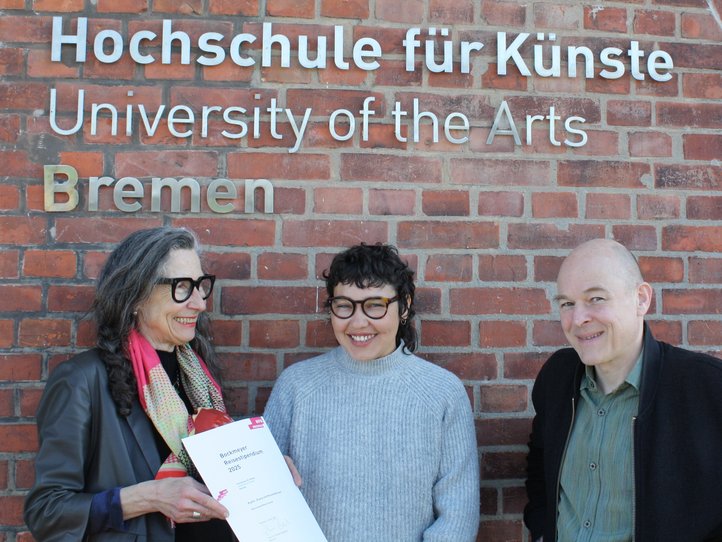Sound art research with a decolonial perspective
The Bockmeyer Scholarship 2025 goes to Moira Anouk Meine Fuentes
The H.-A.-Bockmeyer Foundation supports an annual artistic travel project at the University of the Arts (HfK) in Bremen with €3,000. Students from the fields of fine arts, integrated design, and digital media are eligible to apply.
Given the number, quality, and diverse range of topics covered by the applications submitted, the jury did not find this year's selection easy. However, the winner, Moira Anouk Meine Fuentes from the Fine Arts program, was particularly impressive with her concept for her work “Copper, Sound, and Ceramic Bodies.”
The jury consisted of Dr. Klaus Martin (chairman of the Bockmeyer Foundation), Annette Hans (GAK), Prof. Andrea Rauschenbusch (HfK Bremen), and Prof. Alexander Sahoo (HfK Bremen).
The Bockmeyer Scholarship will take artist Moira Anouk Meine Fuentes to Chile, specifically to the Atacama Desert and sites of copper mining and traditional craftsmanship. There, she plans to explore the everyday lives of the local population and the impact of modern copper mining on their daily lives and the landscape, reflecting on her own family history.
The stops on this journey will be the central locations of copper mining in Chile: Calama (“City of Copper”), Chuquicamata (which was resettled in 2004 due to mining and is home to one of the largest copper mines in the world), Antofagasta (a port city from which copper is shipped), and San Pedro de Atacama, the artist's home village, which is heavily influenced by tourism and known for its pre-Columbian history and traditions of pottery and metalworking.
The artistic concept particularly impressed the jury with its approach of creating a sound map of the region that captures the voices of workers—both in mining and crafts—and explores the resonance of copper in the landscape, in everyday life, and in people's memories.
The travel project is thus not limited to Chile, but also extends to Western industrialized nations. The artist points to the direct impact that the economy and consumption in Europe have on the lives of people in the regions where the raw materials for modern Western lifestyles originate. “Exploring the local effects of these interdependencies at the level of sound and processing them for the final exhibition at the HfK promises an extraordinary way of dealing with the topic, creating a link between autobiographical memory, sound art research, and a decolonial view of materiality,” said the jury. The resulting shifts in perspective struck them as outstanding and timely in the context of cultural research and the “linking of materiality and identity.”